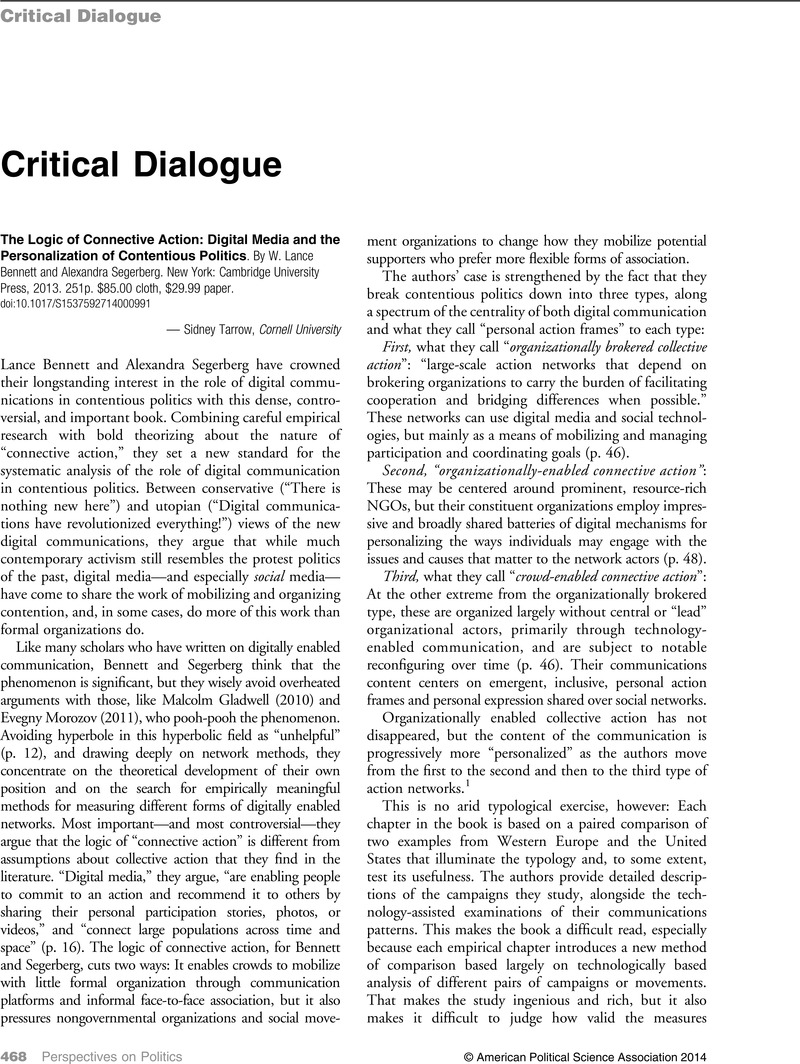Crossref Citations
This article has been cited by the following publications. This list is generated based on data provided by Crossref.
Bimber, Bruce
2017.
Three Prompts for Collective Action in the Context of Digital Media.
Political Communication,
Vol. 34,
Issue. 1,
p.
6.
Grömping, Max
and
Sinpeng, Aim
2018.
The “Crowd-factor” in connective action: comparing protest communication styles of Thai Facebook pages.
Journal of Information Technology & Politics,
Vol. 15,
Issue. 3,
p.
197.
Smit, Rik
2020.
Social Movements, Cultural Memory and Digital Media.
p.
85.
Mir, Touseef Yousuf
2023.
Strong Military and Weak Statehood: The Case of Self‐Governance Through Rasookh in Kashmir.
Politics and Governance,
Vol. 11,
Issue. 2,
p.
315.
de Nadal, Lluis
2024.
The Palgrave Handbook of Global Social Change.
p.
1.



